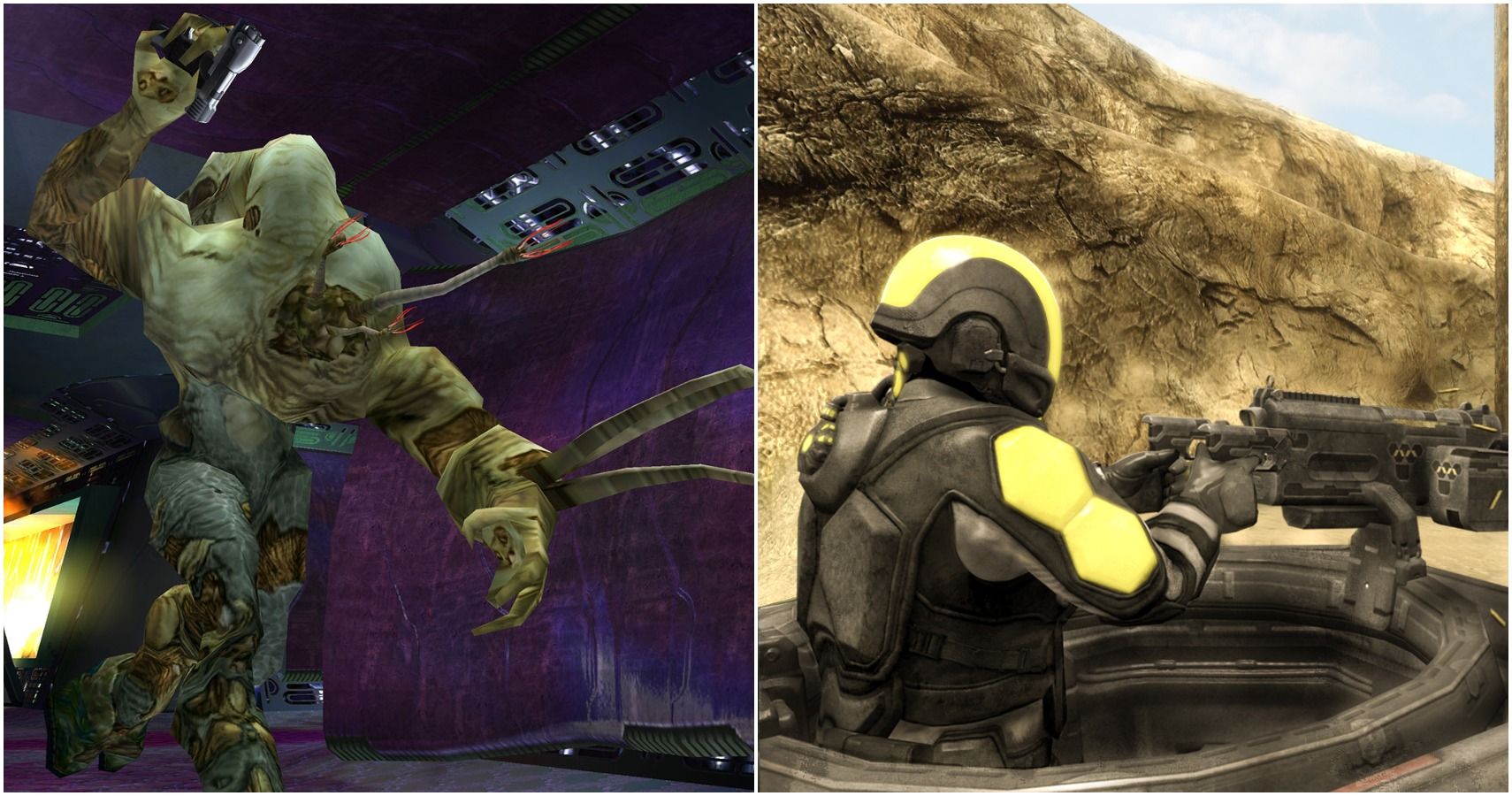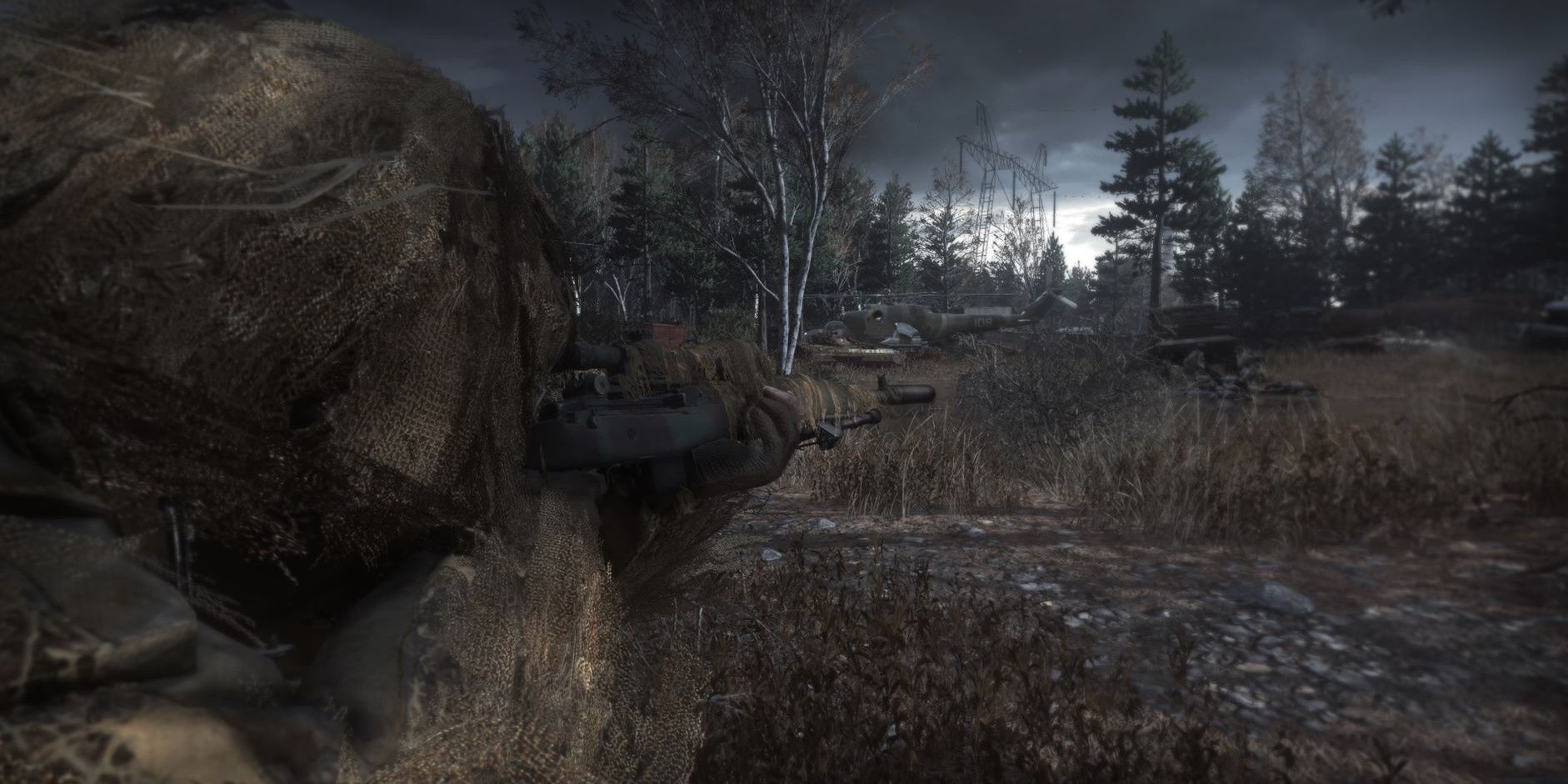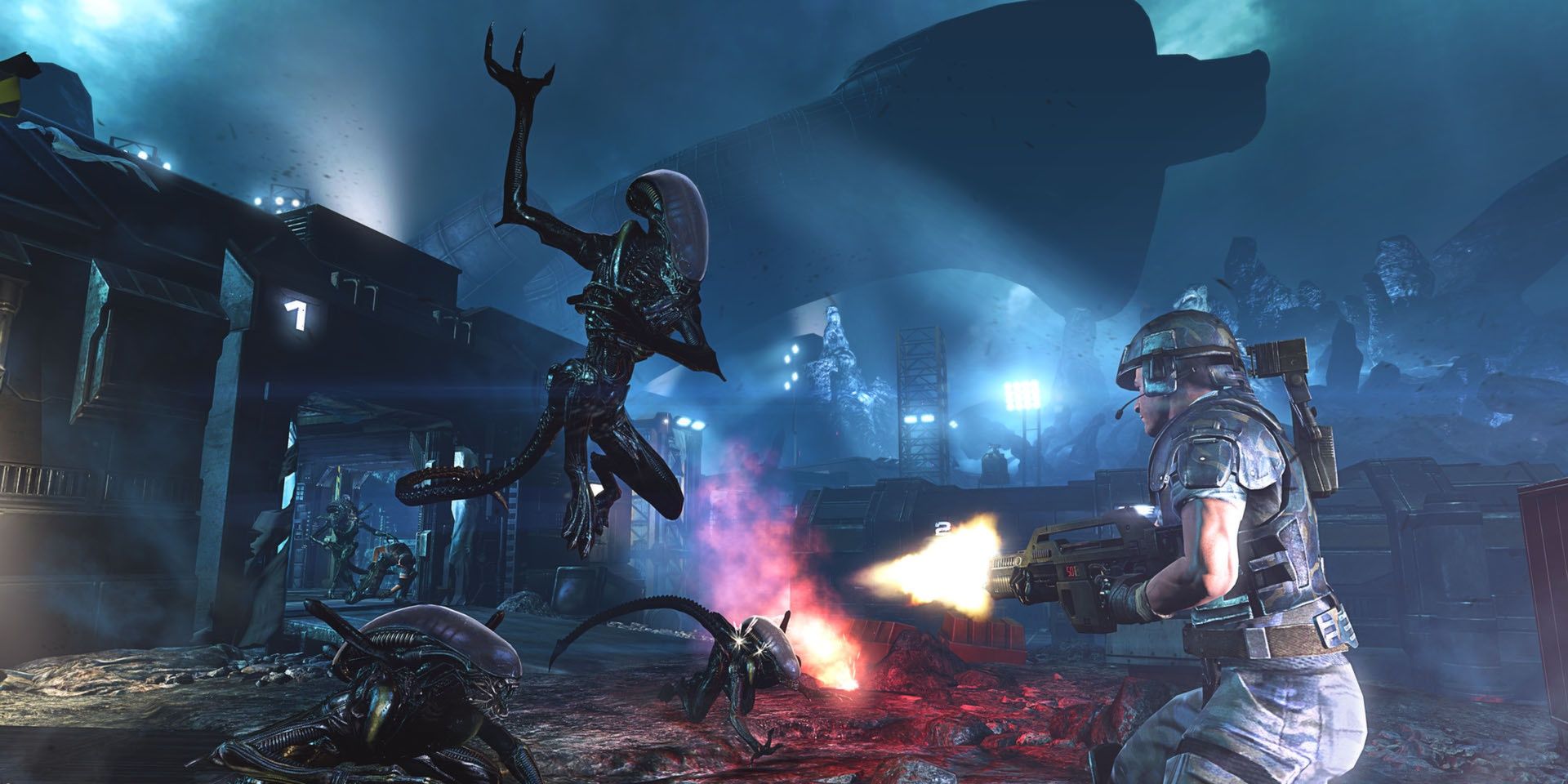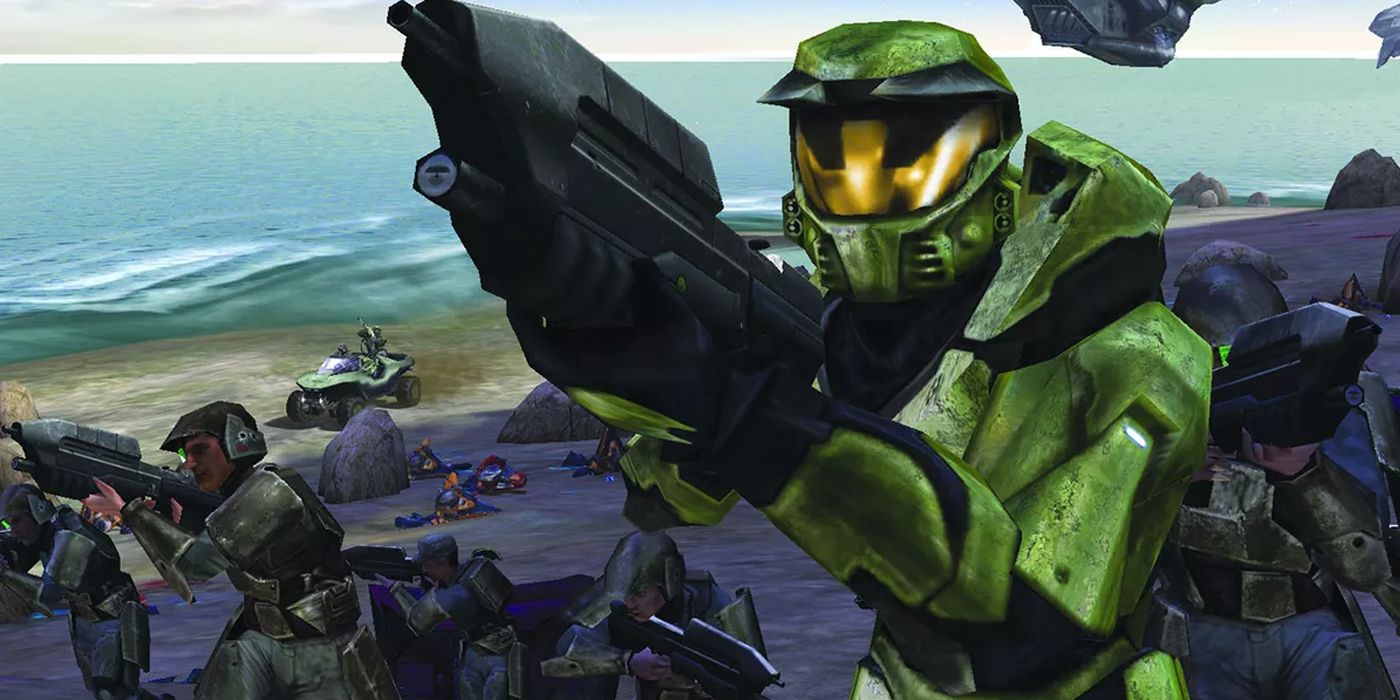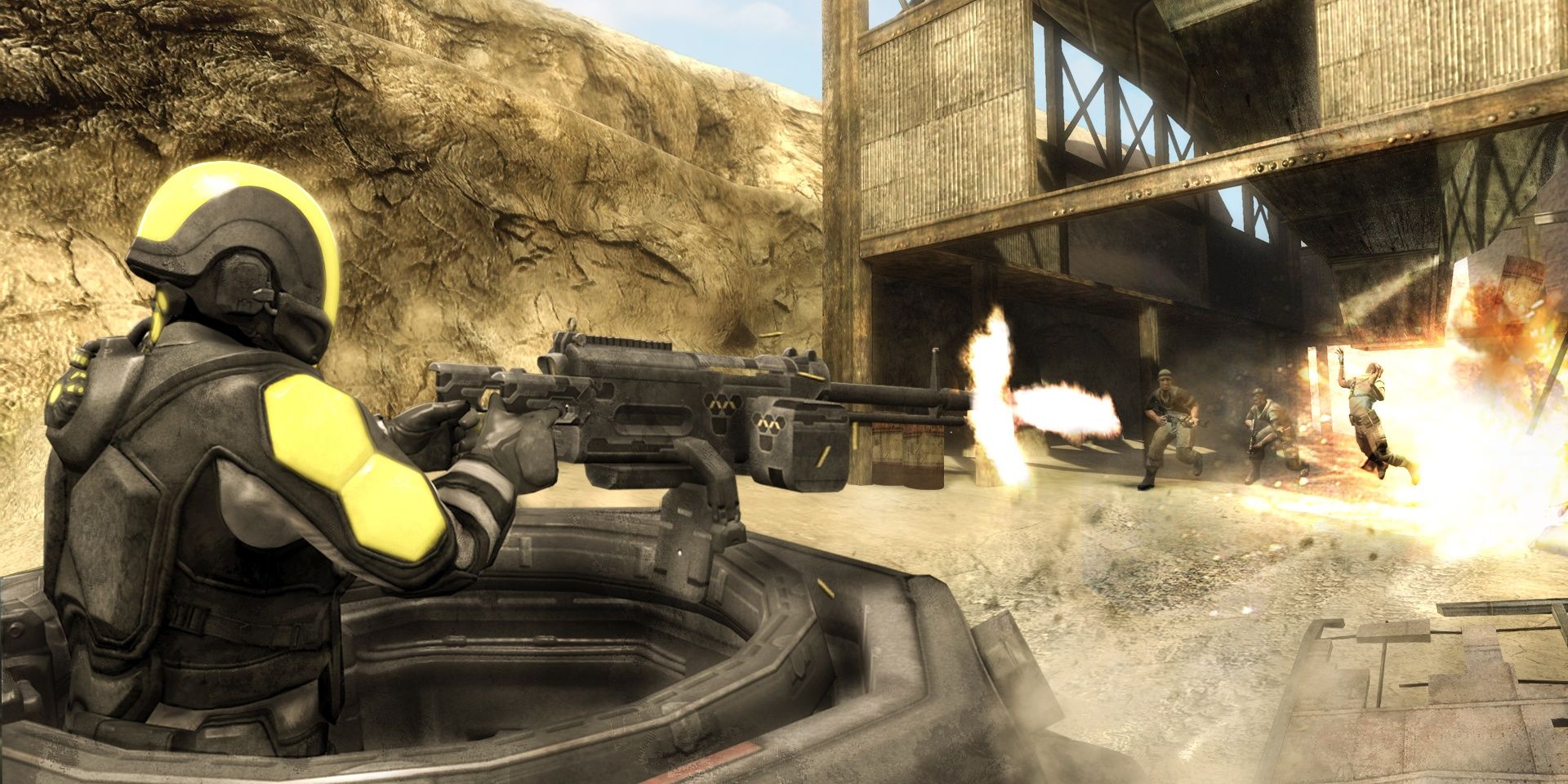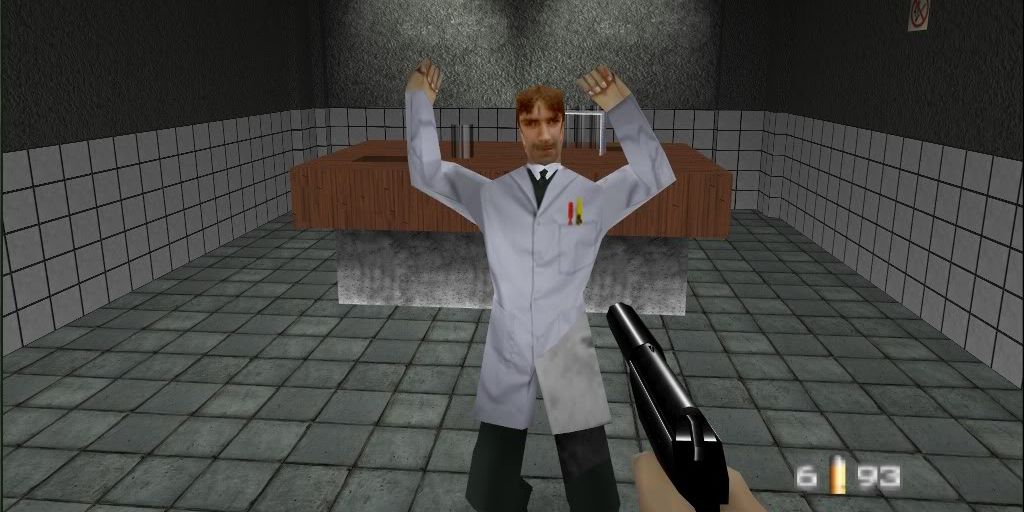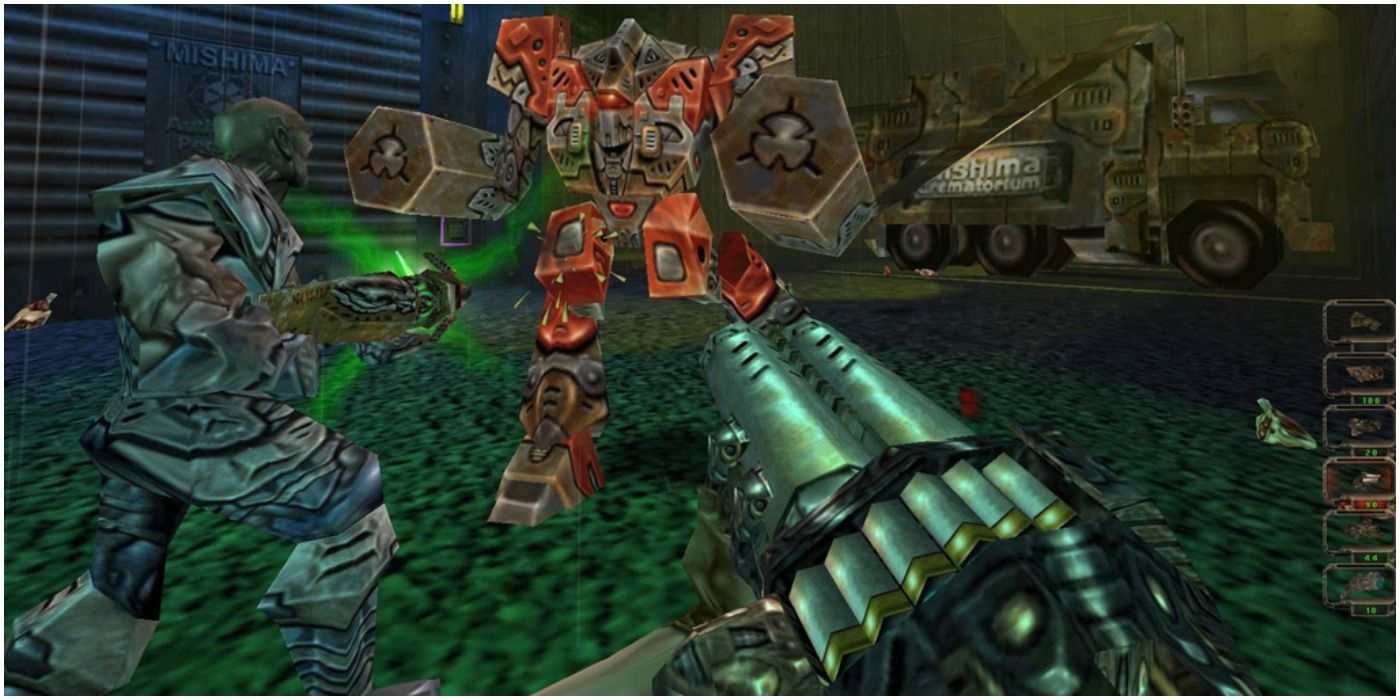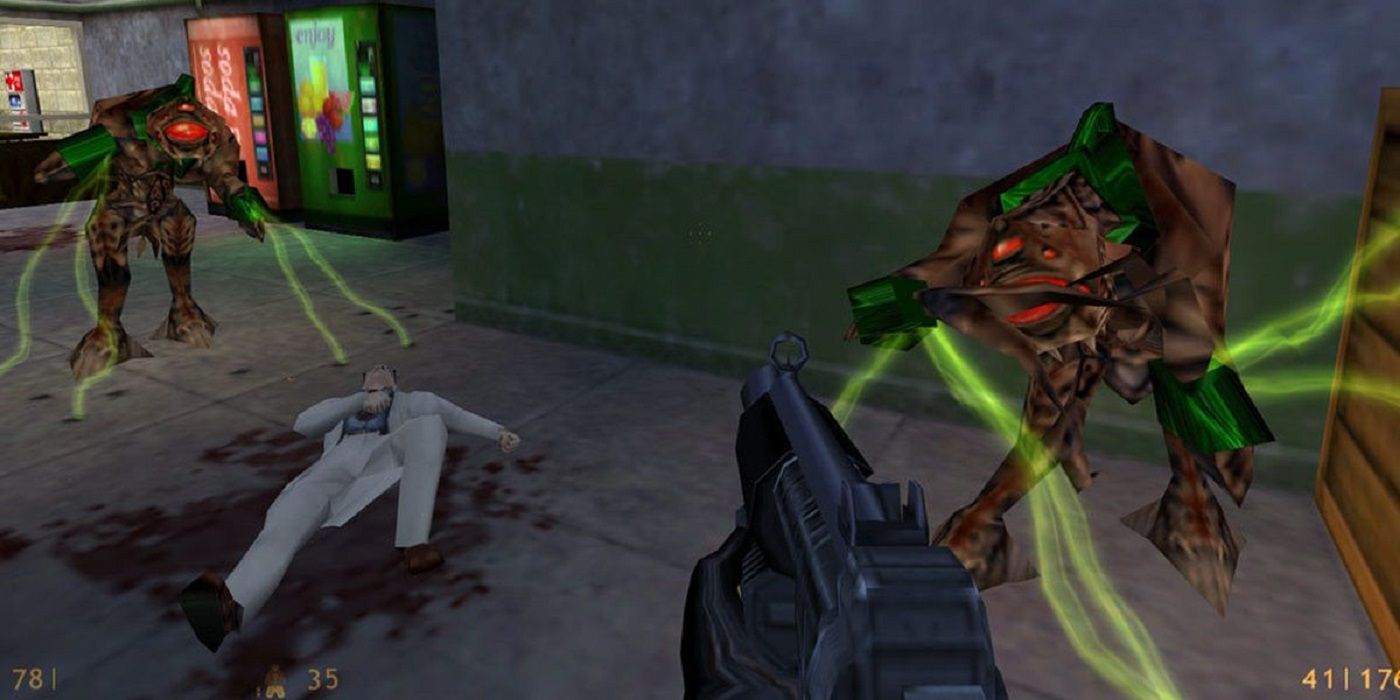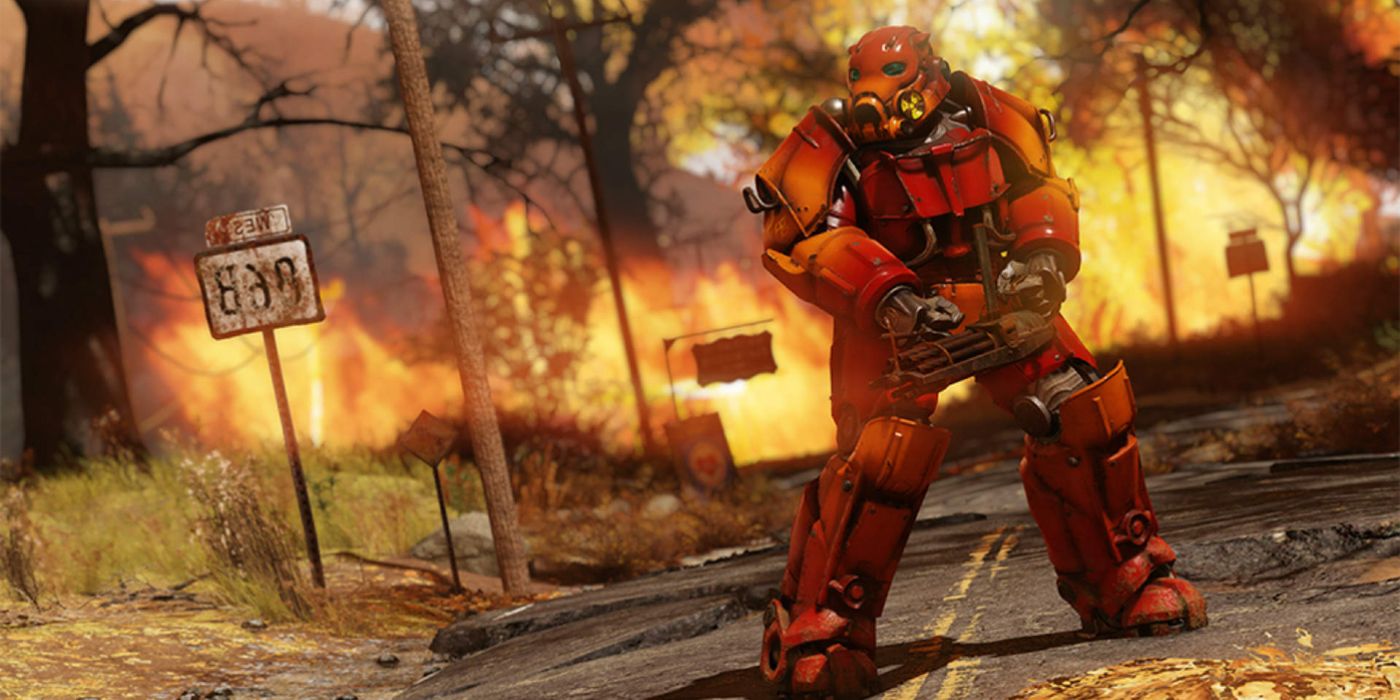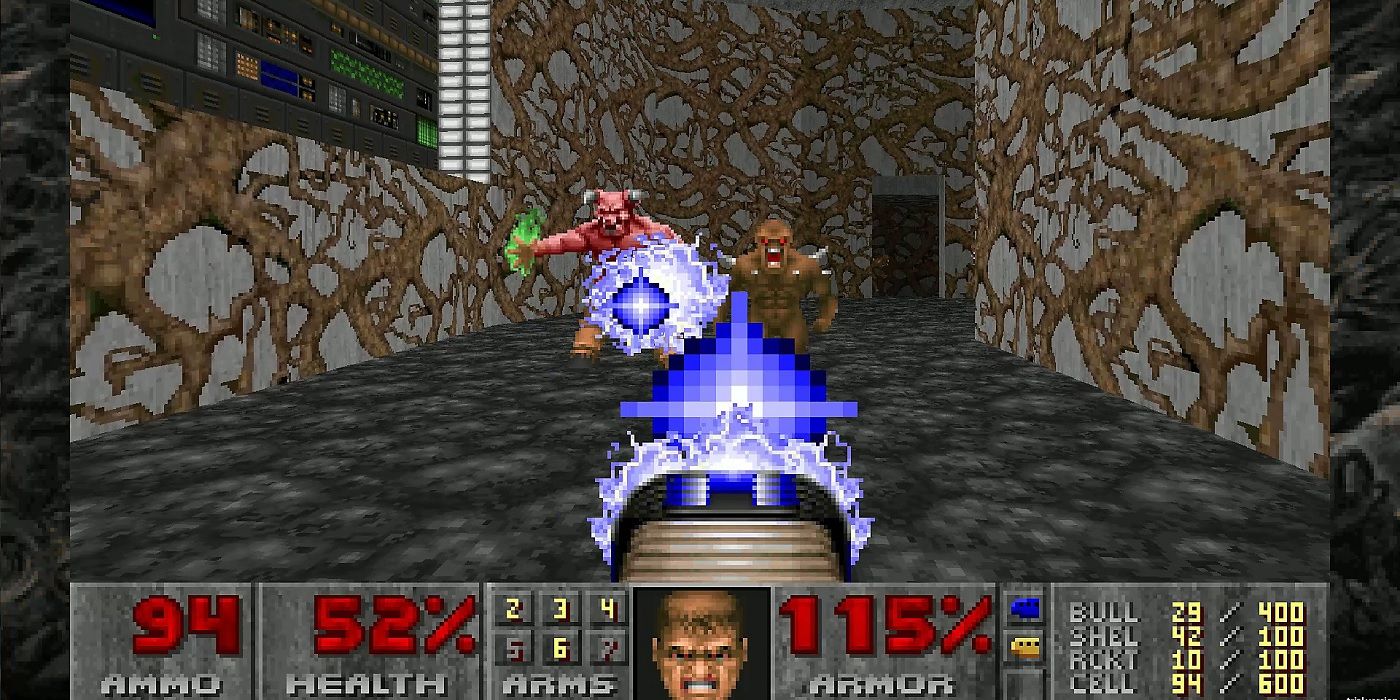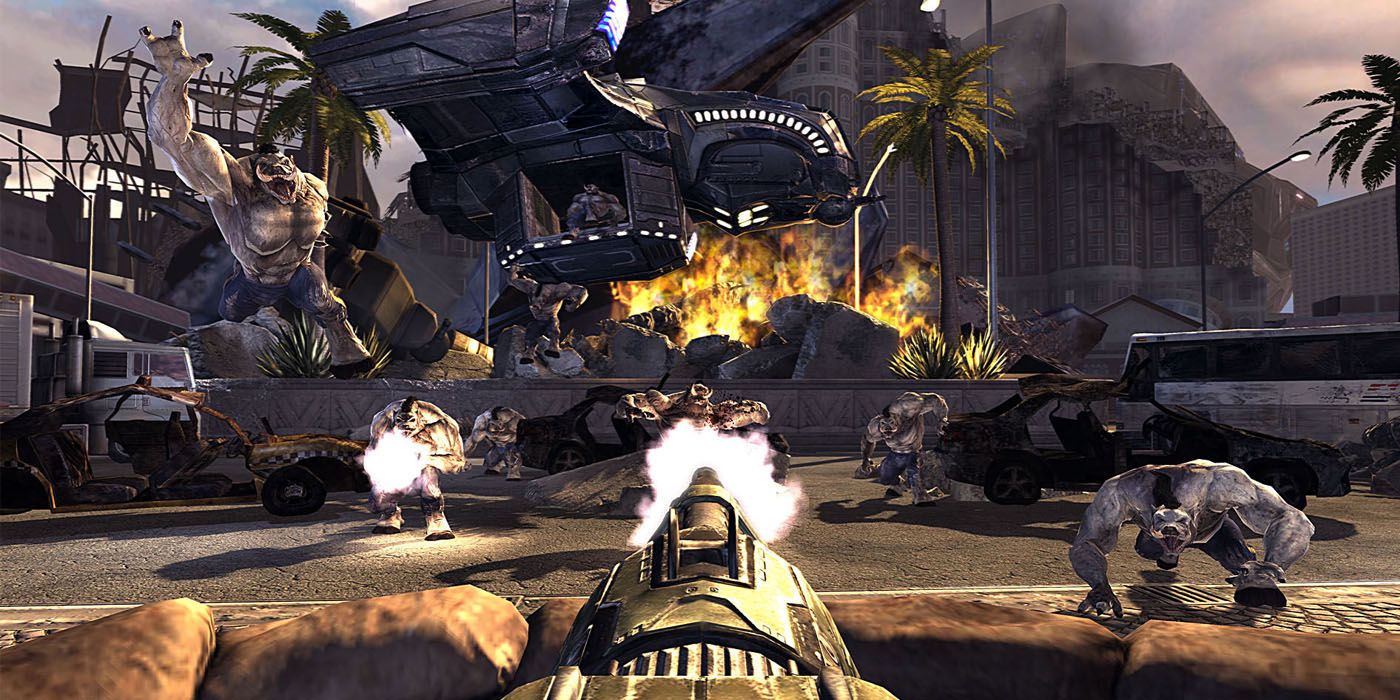First-person shooters are one of the most popular genres around today. With seemingly dozens of FPS titles being released every year, it can feel as if the genre is starting to run out of ideas. Common trends have been used to death, yet there have been many examples of games that have changed the foundation of the genre itself.
From titles that date back to Doom to more modern titles such as Titanfall, games come out every few years that set the bar ever so higher. Unfortunately, not every game can meet this bar and instead fail in a spectacular fashion. Ranging from Halo killers to Call of Duty, here are some games that either changed the FPS genre or failed to innovate. Third-person games are excluded from this list.
10 Changed The Genre: Call Of Duty 4: Modern Warfare
Call of Duty has dominated the FPS genre for well over a decade. It started as a modest competitor to Medal of Honor until Call of Duty 4: Modern Warfare changed everything.
Both the single-player and multiplayer portions lead to many changes in the genre. The campaign was praised for its great use of setpieces that kept the game action-packed throughout its runtime. Call of Duty 4's multiplayer was the true game-changer, however, incorporating RPG elements such as experience points and perks that could be used in custom loadouts. Most FPS titles abandoned competitive ranks entirely in place of CoD 4's progression system.
9 Failed To Innovate: Aliens: Colonial Marines
Aliens: Colonial Marines is a perfect example of misleading advertising. Aliens fans were led to believe this game had sophisticated AI, a plot that would expand on what the movies established, and a general degree of polish that would be completely absent in the final product.
Reviewers and fans alike were dumbfounded at the game's plethora of bugs and missing elements present in various demos shown before the game's release. It's a shame considering how promising the game looked in pre-release footage.
8 Changed The Genre: Halo: Combat Evolved
Virtually everyone acclimated with video games knows of the Halo franchise. The first game completely redefined console shooters, the second redefined multiplayer experiences, and the third title put major emphasis on community tools and custom games. Even if Halo 2 and Halo 3 made radical shifts in the genre, they wouldn't exist if not for Halo: Combat Evolve's solid foundation.
Firing a gun in Halo is as satisfying now as it was in 2001. Weapons make great use of aim assist that, when coupled with the game's great control scheme, give every weapon personality and weight. Halo's gunplay also takes full advantage of great AI that will dodge out of bullets, flank the player, or react to having their leader killed. These things combine with the unique soundtrack and excellent score to make one of the most influential shooters ever made.
7 Failed To Innovate: Haze
PlayStation 3 users might have had Resistance and Killzone, but they didn't have a franchise quite like Microsoft's Halo. Free Radical's Haze was supposed to be a competitor to Halo but was plagued with development issues.
Haze was nothing more than a generic military shooter with a dull color palette and uninspired levels. The narrative showed promise with its premise of soldiers getting addicted to a battle-enhancing drug named "Nectar," but it never heads anywhere interesting. Instead, players spend a short afternoon blasting generic soldiers before the credits roll.
6 Changed The Genre: Goldeneye 007
There was a time in first-person shooters when the ability to look up was rare. Not only did Rare's Goldeneye 007 manage to incorporate much more user control in every gunfight, but it also set the foundation for split-screen co-op, competitive multiplayer, an N64 speedrunning community, and a shift away from keycard mazes for levels to name a few.
Its gunplay and mission design still hold up today. Saying this game was a major genre innovator would be a massive understatement.
5 Failed To Innovate: Daikatana
John Romero, one of the developers behind Doom, Wolfenstein, and Quake, decided to split from id Software to make his own studio that would be devoid of publisher meddling. This studio would be named Ion Storm, and their first game would be the disappointing Daikatana. Overambition was the main culprit for this game's negative reception. Numerous delays meant that Daikatana's potentially innovative ideas were old news once the game released.
Daikatana's promises of having great AI and friendly companions were met with buggy AI that would frequently break alongside graphics that looked years behind the curve. Most of the game's issues can be attributed to Ion's constant rotating of staff and careless attitude during development. Red flags were even apparent with the game's controversial marketing. Needless to say, it was a bad look for a newly found studio.
4 Changed The Genre: Half-Life
Cinematic setpieces and thousands of lines of dialogue seem commonplace in shooters today. That wasn't always the case. Before Half-Life was released, most shooters were about killing everything in a level and stopping a maniacally evil antagonist.
Half-Life put this genre trope on its head by making the player a named protagonist that impacted the story. Players control Gordan Freeman, a scientist that accidentally creates the largest work accident known to man. A reliance on dialogue in-game with no cutscenes was revolutionary at the time and copied to death since. The game also sported fantastic AI that would go on to influence other shooters as well.
3 Failed To Innovate: Fallout 76
Fallout 76 might be one of the most disastrous video games ever released. Some Fallout fans were excited at the game's promise of being a multiplayer Fallout game with quests and PvP, but the game released in such a poor state that it has near single-handedly ruined Bethesda's reputation as a game developer.
This game didn't function well at launch. Animations would stop playing, god rays would pierce the ground itself, quests would frequently break, and some players couldn't even play the game at all. Frequent server crashes meant the game was always prone to stop working altogether. This isn't even including issues outside of the game such as the collector's edition canvas bag or the Nuka Dark Rum controversies. A multiplayer Fallout game could have brought in thousands of new fans to the franchise, but Bethesda instead cashed in their goodwill with one of the most disappointing video games of all time.
2 Changed The Genre: Doom
Before first-person shooter was a commonly-used term, players would take to calling games "Doom clones." This is because Doom effectively kickstarted the FPS genre. Wolfenstein 3D and even Maze War indeed founded the genre, but it was Doom that took the foundations of the genre and molded them into a phenomenal shooter that mastered the art of incorporating exploration with high-octane gunplay.
If it wasn't for this game's existence, the FPS genre wouldn't be where it is today.
1 Failed To Innovate: Duke Nukem Forever
It took 14 years for Duke Nukem Forever to release since it was first announced back in 1997. This sequel to Duke Nukem 3D was to have a much larger scope than any game for its time. Major levels and a wide range of new enemies were just the tip of the iceberg for what was promised.
Instead of being canceled, this game shambled through development hell for over a decade and swapped hands between 4 development studios. Gearbox Software would eventually finish the game. Dated is the best way to describe Forever. This game was an entire console generation behind what its competition was providing. A massive Duke Nukem game with large levels and many interactive elements would have made for a potential game-changer in the FPS genre, but it instead gave developers a perfect checklist on how not to make a video game.

